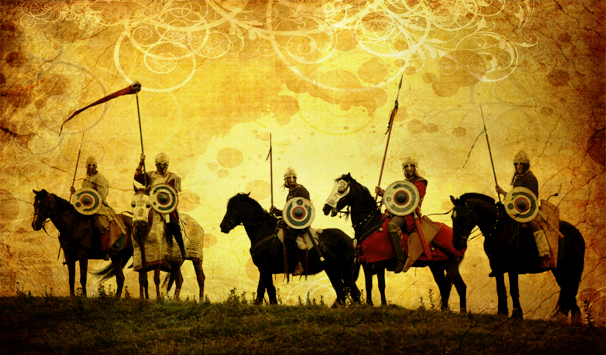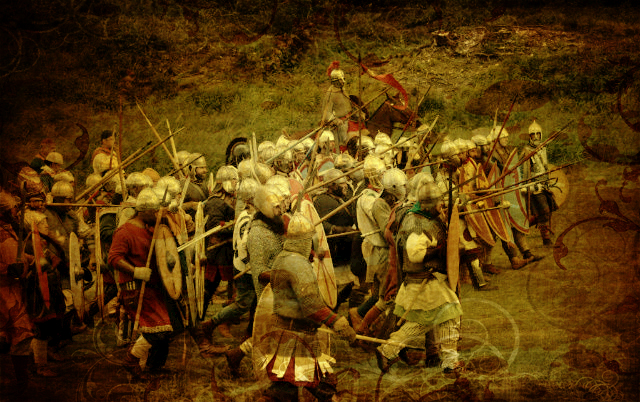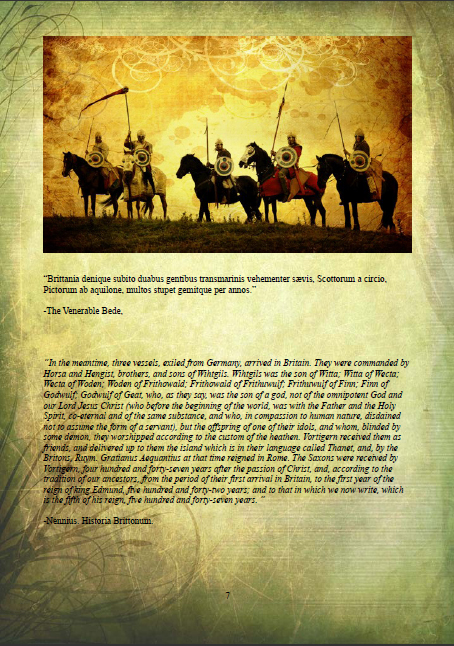 Brytenwalda is a ruleset which will allow you to recreate battles and raids during the so called British “Age of Arthur” and Saxon invasion. In Brytenwalda you'll impersonate a Chieftain during the Dark Ages, commanding his men in the defence of their homelands or looting and burning those belonging to your enemies.
Brytenwalda is a ruleset which will allow you to recreate battles and raids during the so called British “Age of Arthur” and Saxon invasion. In Brytenwalda you'll impersonate a Chieftain during the Dark Ages, commanding his men in the defence of their homelands or looting and burning those belonging to your enemies.Although the Dark Ages were an extremely violent era with a great number of battles and raids, but only a few were detailed in the chronicles, such as decisive pitch battles or those in which an important person died. Brytenwalda is focused on these kinds of battles which the modern wargamer would call a “skirmish”. While you wont be able to re-enact the Battle of Hastings in Brytenwalda, you'll have plenty of fun leading a band of Scot-Irish pirates, a group of raiding Saxons or a unit of Romano-British pedites patrolling the frontier.
Brytenwalda is an open set for mature gamers.
It is open because, as Creative Commons licensed project, you'll be free to adapt the game in any way you feel more confortable with. There is no written in stone rules, you can change whatever you want. You can even set this rules into another time: in Brytenwalda you'll find the rules to create your own warriors or whole warbands so, why not playing in the times of Rome, the Crusades or in a fantasy world?
It is for mature gamers because it is not focused in competitive manners nor thought as game for tournaments. This is just for fun... and fun is what a game should be.
 And, of course, Brytenwalda is all for free. You can choose to download the black and white printer friendly edition or the the full color deluxe edition.
And, of course, Brytenwalda is all for free. You can choose to download the black and white printer friendly edition or the the full color deluxe edition.We'll continue working on the British Dark Ages, and Blooze and Sir Nigel are into the Spanish translation right now, but if you feel you got something you'd like to share just let me know; I'll be happy to know about it.
Thank you for being there, good luck and good hunt!




